There are many self-described “anti-materialists”, religious people and spiritual idealists who don’t just offer metaphysical arguments against what they call “materialism”: they also vocally express their hatred of it. And they hate it for primarily religious, moral and political reasons. Indeed, such people are often very open and honest about all this — as the passages quoted later will show. [See note 1.]
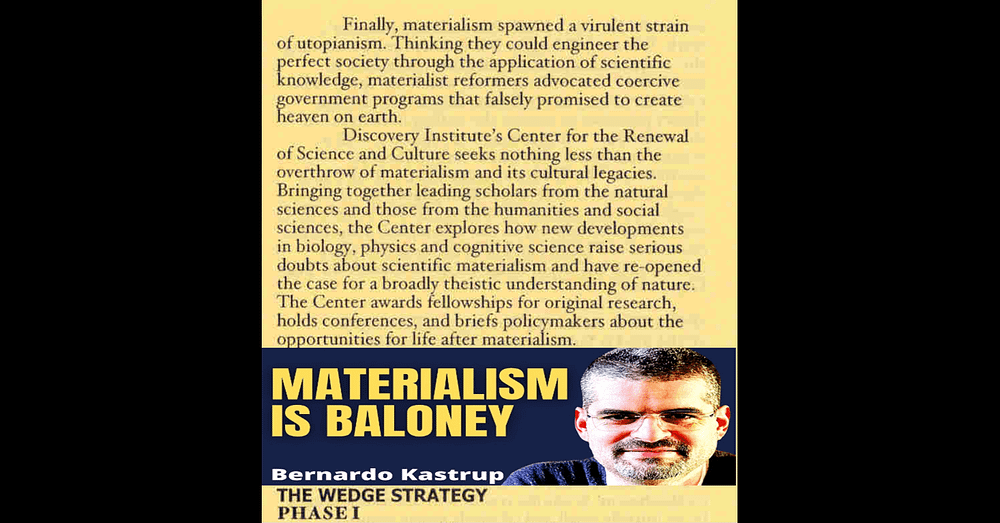
Of course, anti-materialists, spiritual idealists and religious people can — or actually will — now say that “materialists” are just as vocal, forthright and rhetorical when it comes to their own criticisms of religion. And there is some truth to that… at least when it comes to religion. However, there is very little truth to it when it comes to the criticisms of the (strictly) metaphysical positions of anti-materialism and idealism. [See note 3.]
Intelligent Design and Materialism
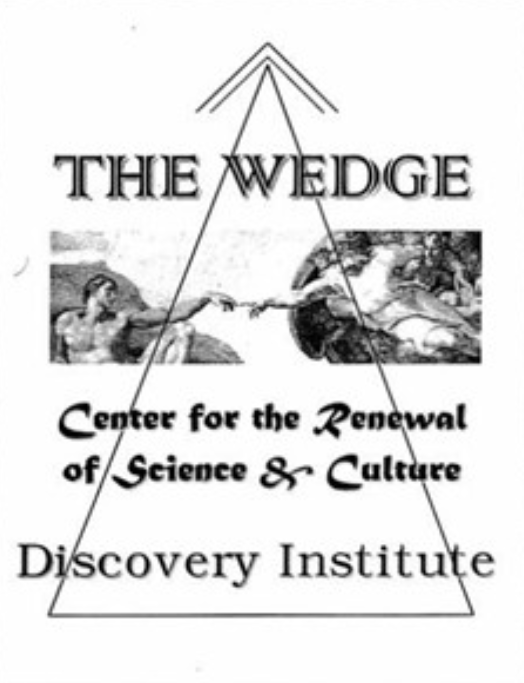
Now take the following passage from ‘The Wedge Document’, as published by the Discovery Institute in 1998:
“The social consequences of materialism have been devastating. As symptoms, those consequences are certainly worth treating. However, we are convinced that in order to defeat materialism, we must cut it off at its source. That source is scientific materialism. This is precisely our strategy. If we view the predominantly materialistic science as a giant tree, out strategy is intended to function as a ‘wedge’ that, while relatively small, can split the trunk when applied at its weaker points. [] Design theory promises to reverse the stifling dominance of the materialistic worldview, and to replace it with a science consonant with Christian and theistic convictions.”
That passage reads like the political manifesto of some kind of “radical” Far Left or Far Right political groupuscule. [See ‘Red Wedge’ as a comparison, note 4.] Yet some readers may think that using such quotations from Intelligent Designers is to pick out straw targets. This isn’t the case. That’s because the rhetoric and (well) honesty of IDers’ positions (such as the one above) can be found in the words of many other self-described (non-ID) “anti-materialists” too. (Bernardo Kastrup and Deepak Chopra are good examples of this — see later.)
Here’s another very similar example:
“Father’s [Reverend Moon’s] words, my studies, and my prayers convinced me that I should devote my life to destroying Darwinism, just as many of my fellow Unificationists had already devoted their lives to destroying Marxism. When Father chose me (along with about a dozen other seminary graduates) to enter a PhD program in 1978, I welcomed the opportunity to prepare myself for battle.”
[This is a good example of what may well be called the political strategy of entryism.]
Those are the words of the American theologian and advocate of Intelligent Design Jonathan Wells (from his ‘Darwinism: Why I Went for a Second PhD’).

In terms of relevant detail. Jonathan Wells joined Phillip E. Johnson (founder of Intelligent Design) at the Discovery Institute. Wells is now a fellow at the Discovery Institute’s Center for Science and Culture. [See Wells at the center here.]
Bernardo Kastrup on Materialism and Materialists
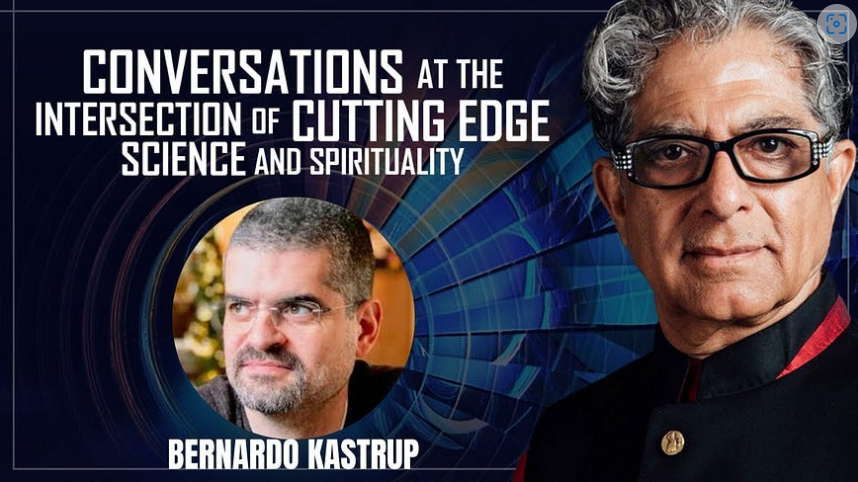
The two quoted passages above read like much of the stuff that the spiritual idealist Bernardo Kastrup has written. Indeed, all you’d really need to do is delete the words “Christian and theistic” from the first passage.
So compare the ID passages above with the following words:
“But science-as-you-know-it implicitly adopts the materialist ontology. Perhaps not all scientists do this; perhaps even only a minority does. But this minority is vocal and influential. They clearly control where the research funding goes, for projects that do not assume the materialist metaphysics collectively get much less funding than projects that do. [] Moreover, this vocal minority also controls how science-as-you-know-it is presented in the media, in school curricula, and to the culture at large. Just think of people like Lawrence Krauss, Richard Dawkins, Neil deGrasse Tyson, Stephen Hawking, and others such specialized prodigies of rhetoric and intellectual puzzles, who cavalierly ignore rigorous logic, epistemology, and ontology.”
All the words above are from the Dutch philosopher and idealist Bernardo Kastrup. [There are more passages from Kastrup to be found in note 5 at the end of this essay.]
In addition, in a commentary on Kastrup’s Why Materialism is Baloney, Deepak Chopra (the businessman and “alternative medicine advocate”) writes:
“Bernardo Kastrup’s book is another nail in the coffin of the superstition of materialism.”
As with IDers, Kastrup isn’t just concerned with getting the metaphysics of “reality” right. Kastrup is primarily concerned with what “our culture embrace[s]”, and the fact that, in his eyes at least, “our culture [has] embraced [] materialism”.
What did Kastrup mean by that?
Kastrup once wrote a piece called ‘Materialism as a political weapon’. One can suppose, then, that Kastrup believes that the politics of materialism must be battled against with the politics of his own spiritual idealism.
As it is, in terms of day to day politics, materialists hardly share any political or ideological views — well, no more than any other group. Some materialists are Marxists. Others are anti-Marxists. Some are liberals. Others are on the Right. Some are Republicans and Conservatives. Others are supporters of the Labour Party and socialists.
Kastrup and other idealists, on the other hand, do seem to share much outside the actual metaphysics of idealism, and not just a commitment to religion and spirituality.
However, to be fair to Kastrup, his piece ‘Materialism as a political weapon’ is what he takes to be a political history of materialism. (Kastrup wrote: “The historical, sociopolitical, and psychological convenience of the physicalist fiction is almost impossible to overestimate.”)
In any case, Kastrup doesn’t even attempt to hide his hatred of materialism. Indeed, he uses the words “materialism” and “materialist” in almost everything he writes and broadcasts.
Basically, Kastrup is waging his own personal Manichean war against the Evil that is materialism. And, needless to say, Kastrup believes that he represents the Good. [See Kastrup’s very many titles which include the word ‘materialism’ here.]
If we return to Intelligent Design.
Kastrup rarely mentions Christ, but he does mention Christianity.
So, firstly, take this passage from William A. Dembski (as found in his book Intelligent Design: The Bridge Between Science and Theology):
“[A]ny view of the sciences that leaves Christ out of the picture must be seen as fundamentally deficient. [] [T]he conceptual soundness of a scientific theory cannot be maintained apart from Christ.”
As just stated, Kastrup isn’t a Christian. However, he most definitely is religious. Despite that claim, Kastrup did once write the following:
“Who am I to talk about religion? I am no theologian or religious scholar. Heck, I’m not even religious.”
This is an incredible statement when set within the context of both all the religious words Kastrup has uttered, and all the things he’s published on religion. However, Kastrup says different things to different audiences. In addition, it also largely depends on how Kastrup is using the word “religious” when he refers to himself.
Like the panpsychist Philip Goff, Kastrup finds “traditional religion” and the “Omni-God” (or the “perfectly good, creator that Christians, Muslims and Jews believe in”) to be too politically and morally incorrect. In Kastrup’s own words:
“I could go on to explore the implications of everything I said above, and to relate it to the appalling state of religion in today’s society.”
So, in basic terms, Kastrup (like Goff) generally believes that such a “Abrahamic God” is not in tune with the moral and political (“progressive”) vibes of the 21st century.
Kastrup also defended what he called “natural theology” (see ‘Natural theology’) in an article on the American biologist Jerry A. Coyne. He wrote:
“[T]here is a place for natural theology. [] [I]f one looks past the pedestrian literal appearances of different religions, one finds significant, quite fundamental, and even altogether amazing commonalities, as many theologians know.”
Kastrup says that he’s not religious in one context, and virtually admits that he is in others. Again, it also depends on how he uses the word “religious” in different contexts. More relevantly, many of his followers most certainly do believe that Kastrup is religious. Indeed, many of them even believe that Kastrup is a “spiritual leader”!
So take the following words from Prof. Jeffrey J. Kripal (as found in his essay ‘Reading Inside God’s Brain’):
“[I]f Bernardo Kastrup and the idealist mystical literatures of the world are pointing us in the right direction — and I think they are — the materialist hypothesis is the exact opposite of the truth. It is fantastically wrong.”
As an idealist, Kastrup has much to say about consciousness. Thus, it’s no surprise that consciousness is very heavily tied to religion. So here’s Jeffrey J. Kripal again on Kastrup’s “philosophy of consciousness”:
“[A]ny future, truly adequate philosophy of mind or science of consciousness will have to go through the study of religion, and in particular the comparative study of mystical literature.”
Let’s get back to Kastrup himself.
Few things are so closely connected to religion than a belief in the afterlife. And, guess what, Kastrup believes in the afterlife.
In a YouTube video called ‘When We Die and The Meaning of Life’, Kastrup offers his followers the following (as one of them puts it) “very reassuring” words:
“Under analytical idealism, your core subjectivity remains as you as you go through the process of death, and even after. Because your core subjectivity is the core subjectivity of nature. It’s what exists. Where is it going to go? Life and death happen to it — within it. Life and death are events in core subjectivity, not at the beginning and end of core subjectivity.”
An idealist like Kastrup may argue that a belief in the afterlife need not necessarily be tied to religion at all. In other words, a belief in the afterlife may simply be a result of Kastrup’s idealism and his views on consciousness. Yet, of course, in 99 cases out of a 100 (both today and historically), the afterlife has most certainly been tied to religion. Indeed, Kastrup himself ties the afterlife to religion. [See here.]
Now let’s move away from the spiritual idealist Bernardo Kastrup, and move on to the spiritual panpsychist Philip Goff.
Philip Goff and John Eccles on Materialism
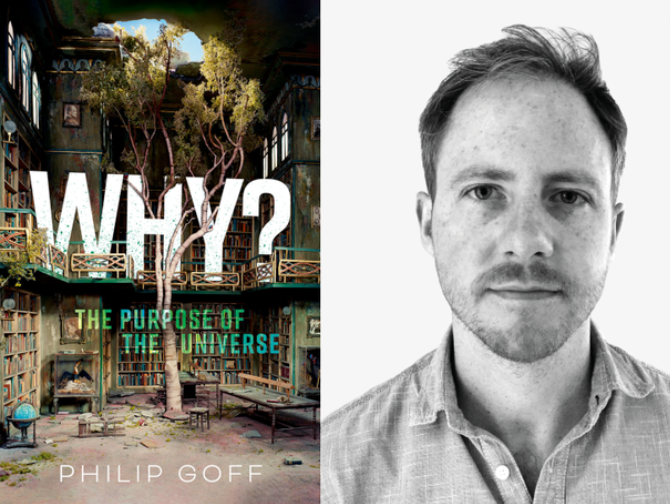
The English philosopher Philip Goff once said that “materialism is a pretty dismal worldview”.
As an example of that (as it were) dismalness, Goff (in his book Galileo’s Error: Foundations for a New Science of Consciousness) wrote:
“[] One can’t help wondering whether the Churchlands’ [Paul and Patricia] early courtship involved poetry expressing the strength of their neuronal activations for each other. []”
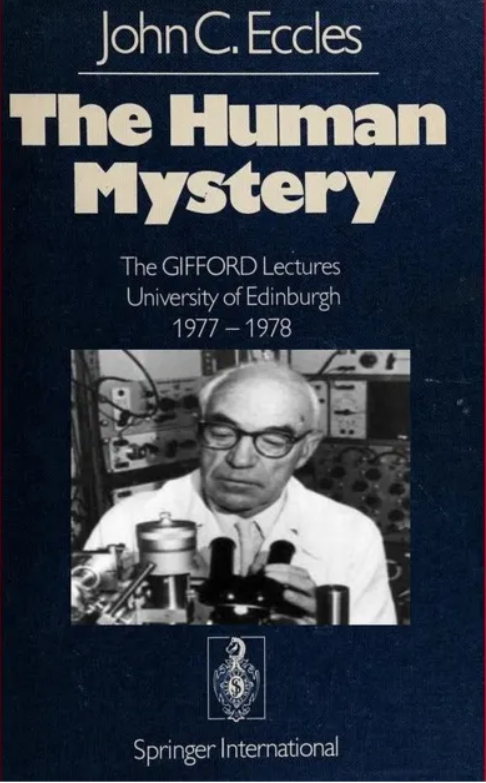
That passage from Goff also echoes what the Australian neurophysiologist John Carew Eccles (in his book How the Self Controls Its Brain) said many years before. Eccles wrote:
“I maintain that the human mystery is incredibly demeaned by scientific reductionism.”
In his book Evolution of the Brain: Creation of the Self, John Eccles also wrote the following
“This belief must be classed as a superstition [] [W]e have to recognize that we are spiritual beings with souls existing in a spiritual world as well as material beings with bodies and brains existing in a material world.”
So some materialists — and many others — have classed views like Eccles’s own as being “superstitious”, and also driven by “prior religious beliefs”. That is, such beliefs are prior in the sense that many (even most) anti-materialists held them long before they indulged in any science or philosophy. This is certainly true of Eccles himself. Take this bit of biography:
“A ‘sudden overwhelming experience’ [] during [John Eccles’s] first year at medical school took the form of a mystical feeling of existential wonder that owed much to his devout Catholicism and inspired him to be a neuroscientist.”
Elsewhere, we also have the following:
“Eccles was, for much of his life, a practicing Roman Catholic []. [H]e retained a deep sense of the reality of mystery, and of a spiritual realm, that for him left scope for theology in addition to science. Unlike many scientists, he did not think that science alone could fully understand the universe, or the mystery of life.”
Now guess what. Many anti-materialists return the favour by saying that the belief in materialism is itself (or is also) a “superstition”. (Readers may remember Deepak Chopra using the word “superstition” about materialism earlier.) Eccles elaborated here:
“Promissory materialism is simply a superstition held by dogmatic materialists. It has all the features of a Messianic prophecy, with the promise of a future freed of all problems — a kind of Nirvana for our unfortunate successors.”
How should we take Eccles’s words “the materialist superstition”, “dogmatic materialists”, “Messianic prophecy”, “a kind of Nirvana”, etc?
Eccles was using a tried-and-tested technique which many self-conscious anti-materialists — along with those who reject Darwinian evolution — employ whenever they can.
This is the trick.
If a materialist, “evolutionist” or atheist accuses a anti-materialist, spiritual idealist or religious person of x, then the latter three will accuse the former of being x too. Thus, there’ve been lots of anti-materialists, spiritual idealists and religious people who’ve accused materialists, evolutionists and/or atheists of having “faith” in materialism, evolution and atheism. Indeed, they’ve also stated that “materialism [or atheism or evolution] is a religion”.
This kind of thing happens at a lot at infant and junior schools. That is, when a little kid accuses another little kid of being x, then that other little kid then accuses the accuser of being x too.
Yet it can be argued that very few anti-materialists, spiritual idealists and religious people genuinely do believe that materialism, atheism and evolution are religions, or that people believe in materialism, atheism and evolution purely on faith. Thus, the comparisons between religion and materialism, atheism and evolution are often so vague, tangential and rhetorical that, in most cases, I doubt that these claims are even believed by most of the people who actually state them.
All that said, to claim that materialists, evolutionists and atheists have faith in what they believe is extremely useful, and it scores many strategic and rhetorical points.
Part Two
Leftwing (i.e., Non-Religious) Politicised Science

Many leftwing scientists and academics have had much to say about Intelligent Design being almost entirely motivated by Christian and rightwing political concerns. They are exactly right. However, the problem here is that these very same scientists and academics rarely (if ever) mention that there’s a similar much-more-widespread problem on the Left, as displayed in academic work and in various sciences.
[I’ll ignore Nazi racial science, Soviet Lysenkoism, etc. here. Save to say that there certainly isn’t only a problem from Christians or religious people on the Right when it comes to the abuses and political manipulations of science.]
To put things simply.
Whereas IDers want science to serve Christianity and right-wing politics, many other scientists and academics want science to serve leftwing and/or “progressive” politics. (More specifically, to serve leftwing political causes and goals.) Indeed, many leftwing scientists and academics have been explicit about their view that much (even all) science should serve “radical” or “progressive” politics.
So this problem doesn’t just come from one direction.
Thus, it’s odd (or even perverse) that some of the most vocal scientific and academic critics of Intelligent Design also believe that science should serve politics. In addition, surely to say that this kind of thing only occurs on the Right and with “right-wing evangelicals” (or with IDers) is simply to display a politically-tribal position of the most obvious kind.
Take the words of the American theoretical physicist Leonard Susskind.
Leonard Susskind on Right-Wing Anti-Science
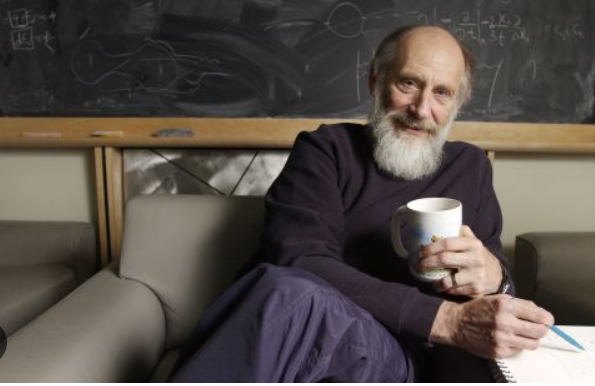
In an article on Intelligent Design called ‘The Good Fight’, Leonard Susskind is at pains to single out only rightwing abuses and manipulations of science. Oddly, this occurs straight after Susskind warns his readers about tribalism and “the ability to divide the world into ‘Us’ and ‘Them’ and then dehumanize”.
For example, Susskind tells us that a
“well-respected scientific community can be a major inconvenience if one is trying to ignore global warming, or build unworkable missile-defense systems”.
Elsewhere, Susskind adds:
“Even more disasters will result from ignoring the warnings of climatologists about global warming, or the advice of numerous scientists about how best to stem nuclear proliferation.”
Susskind then singles out yet more exclusively right-wing suspects:
“[T]he attacks of Senator Joseph McCarthy resulted in a deep suspicion of the motives of those scientists who lobbied for nuclear sanity. [] Today we have the ridiculous comedy of a Yale- and Harvard-educated U.S., president [George Bush] who plays to his audience by (deliberately?) mispronouncing the word ‘nuclear’.”
All this is precisely what you’d expect to read from a New York “liberal” - if one who also happens to be a well-known theoretical physicist.
However, a far more blatant case is that of Stephen Jay Gould.
Stephen Jay Gould’s Radical Science

The American palaeontologist and evolutionary biologist Stephen J. Gould was keen to point out that various scientists had advanced “right-wing”, “racist”, “capitalist”, and even “fascist” interpretations of various evolutionary and biological theories and data.
So what did S.J. Gould do in response?
He often put a leftwing (or even Marxist) interpretation of the very same evolutionary and biological theories and data.
More specifically, take Gould’s case against evolutionary “progress”.
Gould’s stance on evolutionary progress is deeply infused with his leftwing politics. Take this highly political and rhetorical passage from Gould:
“[E]volution has been saddled with a suite of concepts and meanings that represent long-standing Western social prejudices and psychological hopes, rather than any account of nature’s factuality.”
More relevantly, Gould concluded:
“Most pernicious and constraining among these prejudices is the concept of progress [].”
All that shouldn’t be a surprise because Gould was a self-described “Marxist” (see here) who was part of the Radical Science Movement. (Many other commentators — both positive and negative — have connected Gould’s views on punctuated equilibrium to his Marxism too — see here.)
Ironically and despite the many denials, many of those who’re sympathetic to Gould have also freely admitted that his politics influenced his science. However, they believed that his politics influenced his science in only entirely positive ways. [See here from www.marxists.org.]
So there seems to be a contradiction here.
What I mean by contradiction is that it’s often the case that some of those who speak out against the political nature of science don’t do so because they believe that science should be apolitical: they do so because they believe that science should be political in correct ways. (See Elizabeth Anderson later.)
Take Science for the People and the Sociobiology Study Group in the 1970s and 1980s.
Stephen Jay Gould — again — was a member of these two groups. So too was Steven Rose (an important member of the Socialist Workers Party — see here) and Richard Lewontin (“the Marxist geneticist”).
The members of these two groups didn’t want to make sure that scientific theories were apolitical or that scientists kept out of politics. They wanted to make sure that scientific theories and scientists themselves were political in the correct (i.e., Marxist) ways.
[See ‘Radical Science and its Enemies’, by the Marxists Steven Rose and Hilary Rose.]

Thus, it was no surprise that the International Committee Against Racism (INCAR) grew out of this Far Left atmosphere of scientific intolerance. Specifically, INCAR attacked yet another scientist Gould had serious problems with — E.O. Wilson. [See here.]
In detail, just before Wilson gave a talk, the microphone was taken over by members of INCAR. They chanted:
“Racist Wilson you can’t hide, we charge you with genocide.”
Then these same activists rushed Wilson and poured a pitcher of ice water over his head.
Now let’s move away from scientists (palaeontologists, biologists, geneticists, etc.) to a philosopher of science.
Take the case of Elizabeth Anderson, who is a Professor of Philosophy and Women’s and Gender Studies at the University of Michigan.
Elizabeth Anderson on Politically-Correct Science

In a paper called ‘Feminist Epistemology: An Interpretation and a defence’, Elizabeth Anderson argues that feminist naturalised epistemology
“rejects the positivist view that the epistemic merits of theories can be assessed independently of their ideological applications”.
Here again (as with S.J. Gould and his Marxist friends) it’s not the case of Anderson discovering the political and ideological positions of scientists (i.e., those which impinge on their accounts of the “the epistemic merits” of their scientific theories). It’s more a case of Anderson arguing that ideological and political considerations should impinge on the accounts of the epistemic merits of scientific theories…
But not so quick.
It should only be ideologically and politically correct considerations which do so.
So this particular expression of feminist philosophy of science isn’t about discovering — or simply acknowledging — the role and importance of ideology and politics in science. It’s an expression of the normative and political view that scientists should be fully ideologically and politically aware — all the way through their scientific work.
To be more specific.
Anderson believes that all scientists should always keep their eyes firmly fixed on all possible future (Anderson’s words) “political applications” of their scientific theories. (This ties in why what Leonard Susskind said earlier about “nuclear proliferation”, “missile-defense systems” and “global warming”.)
If Anderson is correct to argue that ideology and politics pervade all science, and that such politics and ideology should be politically acceptable (to whom?), then science (as well as the philosophy of science) effectively becomes a political battleground. More technically, science becomes a battleground in which, according to Antonio Gramsci (writing in the 1930s), scientists and academics (like Anderson herself) take part in a “war of position” to establish their own scientific and political “hegemony”.
So Anderson advances the position that all science is inherently political. (Historically, this was also the position of both the Nazi and Soviet states. See ‘Ideologically Correct Science’.) Thus, it follows (at least to her) that scientists and philosophers of science (or at least those who share her own politics) must make sure that all science is both ideologically acceptable and politically correct.
Notes:
(1) Some of these self-described “anti-materialists” — Bernardo Kastrup is a very good example — class all sorts of different positions as “materialist”, and very many different people as “materialists”. [See here.]
(2) Here is Bernardo Kastrup on Intelligent Design:
“[] I equated intelligent design with the notion of a supernatural being standing outside of nature and designing it like an architect designs a building. [] I have always had, and still have, a strong tendency to reject this story as simplistic, logically inconsistent, and somewhat arbitrary.”
Oddly enough (or perhaps not), I could only find one blog post (the one just quoted) in Kastrup’s entire blog which discusses Intelligent Design.
(3) It can also be said that an idealist like Donald Hoffman is rarely (if ever) rhetorical about the matter of materialism. Yet most anti-materialists most certainly are. (Although Donald Hoffman is a strong critic of materialism, he often uses the term physicalism instead. See Hoffman’s uses of the term “physicalism” here.)
(4) On Red Wedge:
“Red Wedge was a collective of musicians formed in the UK in 1985 who attempted to inculcate youth with the policies of the Labour Party leading up to the 1987 general election in the hope of ousting the Conservative government of Margaret Thatcher.”
(5) More quotes from Bernardo Kastrup on materialism:
Take these words:
“[] Materialism is so blatantly absurd that most materialists — I strongly suspect — replace it with one or another private, implicit misapprehension of it in their own minds, which circumvents some of the absurdities at the price of internal contradictions conveniently overlooked. In other words, it is the naked implausibility of materialism that — ironically — makes it seem credible [].”
And these:
“All in all, it is useful to engage militant materialists from time to time. It gives striking insight into how a worldview that is so wrong manages to keep such a hold on the intellects of so many: it blinds you, immerses you in an unfathomable but insidious network of abstractions, hidden assumptions, and prejudices that infects every aspect of your thinking and judgement. It literally makes you unable to see simple and self-evident things right under your nose. It makes you project your own preconceptions, expectations, and misunderstandings onto everything others are saying, so you also become unable to listen. Deaf and blind, one can’t escape the cage. It’s surreal.”
This:
“Throughout the two or three centuries of materialist hegemony in academia, religious and spiritual movements have competed for the hearts and minds of ordinary people. New Age, non-dualism, Buddhism, and a host of other related worldviews have certainly achieved a degree of influence in our culture. [] The metaphysics underlying these spiritual traditions, however, has achieved no recognition in academia [].”
In a piece called ‘Dim-witted biologist: consciousness is accidental’, Kastrup writes:
“Jerry Coyne just isn’t a serious participant in any discussion regarding the nature of mind and reality. [] It doesn’t take Coyne long to run the entire gamut of faulty logic; it’s quite remarkable. I suspect he is just too dim-witted in regard to philosophy to realize how dim-witted he is in regard to philosophy (the Dunning–Kruger effect).”
Kastrup excused the abuse and rhetoric in this post by writing the following words:
“(Important observation: the demeaning tone of this post, including the mildly disparaging use of a nickname [Jerry Berry], has been carefully studied — sometimes down to specific sentence structures — to exactly match the tone with which Jerry Coyne writes about other people and their respective ideas, including myself. [] If you think my tone goes too far, then please remember that this is precisely my point.”
Yet Kastrup doesn’t also inform his readers that he uses exactly the same kind of rhetorical and abusive language about virtually all his critics, as well as those people who have views he doesn’t like. That long list includes the following names and positions: Philip Goff, Sam Harris, Tim Maudlin, Daniel Dennett, Sabine Hossenfelder, Michael Graziano, Keith Frankish, Massimo Pigluicci, academic philosophers generally, literally all materialists, “our materialist culture”, etc.










No comments:
Post a Comment